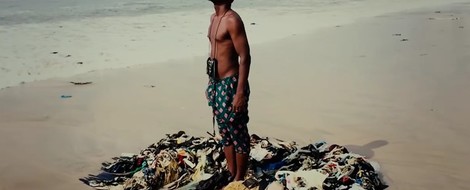Your podcast discovery platform
Curious minds select the most fascinating podcasts from around the world. Discover hand-piqd audio recommendations on your favorite topics.

piqer for: Global finds
Ciku Kimeria is a Kenyan author "Of goats and poisoned oranges" - (https://www.amazon.com/goats-poisoned-oranges-Ciku-Kimeria-ebook/dp/B00HBBWPI6), development consultant, adventurer and travel blogger (www.thekenyanexplorer.com). She writes both fiction and non-fiction focusing on African stories that need telling. She has worked on diverse pieces for various international and local publications including Quartz, Ozy, The East African etc. She has travelled to 45 countries – 16 of them in Africa. 153 countries to go and 63 territories!
"Of goats and poisoned oranges" has been extremely well received in Kenya and beyond. It tells the story of a Kenyan middle aged power couple and their complicated marriage. The novel explores issues of greed, revenge, betrayal and murder. It runs from the 1960s to 2013. It has been described as “Wicked, funny, poignant, wacky, human, a big ball of fun and danger”, “A unique and captivating book”, “Fun and intriguing”, “Impossible to put down once you start reading.”
She recently moved to Dakar, Senegal from Kenya to work on her second novel. She also works at as the Africa Communication Manager at a leading global strategy consulting firm.
She holds a B.S. in Management Science from MIT with minors in Urban Planning and International development studies.
Ghanaian Rappers Are Using Hiphop To Discuss Environmental Issues
The conscience of mainstream music including hiphop might not always be clear. Consumerism sometimes seems to be at the center of it all—with the glorification of all the things money can buy and a need to overshadow other artists by going even bigger each time. One can get disillusioned, but there are still lots of times when music is being used as a force for good and one that can address social ills by exposing them.
In the music video for his song Gold Coast, released last year, Ghanaian rapper ELi stands on Accra’s Labadi beach, as waves and plastic bottles crash against his legs....These artists want to focus attention not on traditional Ghanaian hip-hop themes of financial success, love, and lifestyle, but on other problems that can plague a democracy, like the river of plastic bottles and bags strewn throughout Accra’s neighborhoods and tepid environmental policies that means pollution is rampant. The rappers see their music and platforms as essential to bringing awareness to the crisis.
In Ghana and other parts of West Africa, artists are increasingly turning to hiphop to speak about certain issues such as the high rates of unemployment, sexism, poor governance and environmental issues. In the age of social media, the Ghanaian artists are also able to spread their message without having to work through mainstream channels—that would make them pay for their music to get played.
Ghana is a peaceful country and as such the musicians are able to focus on issues that question the status quo in a country that was described as a "model democracy" by former US President Barack Obama.
Art is opening the door for a spiritual revolution in Ghana.
